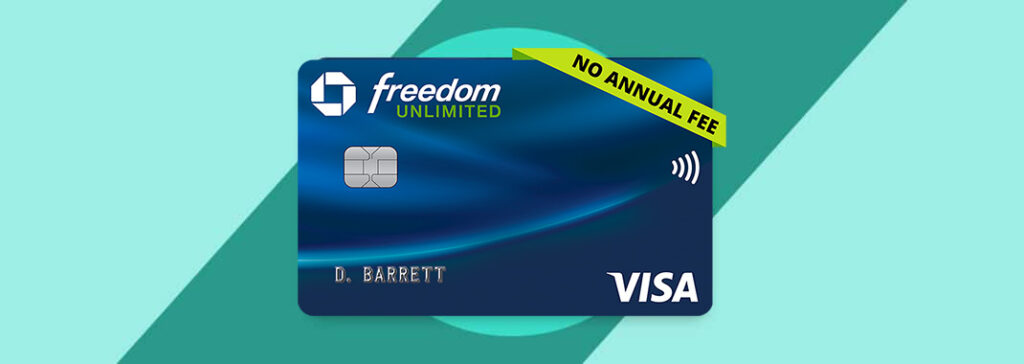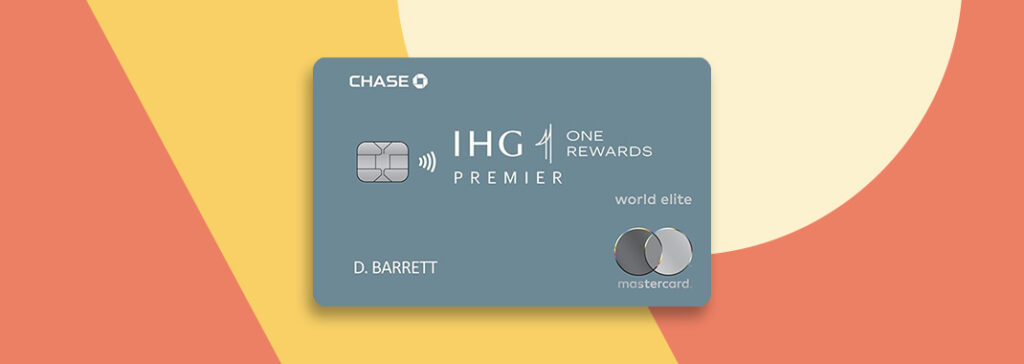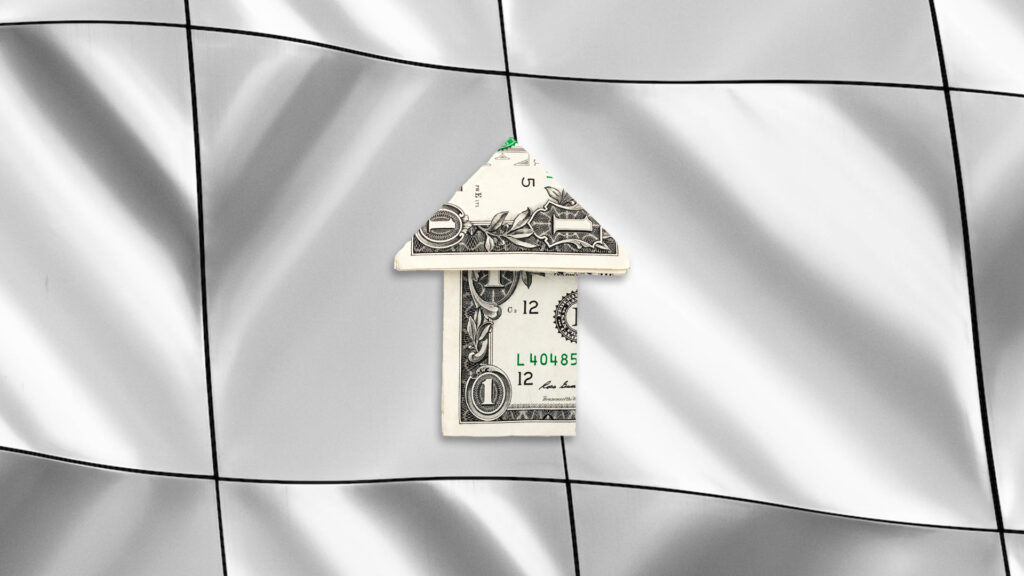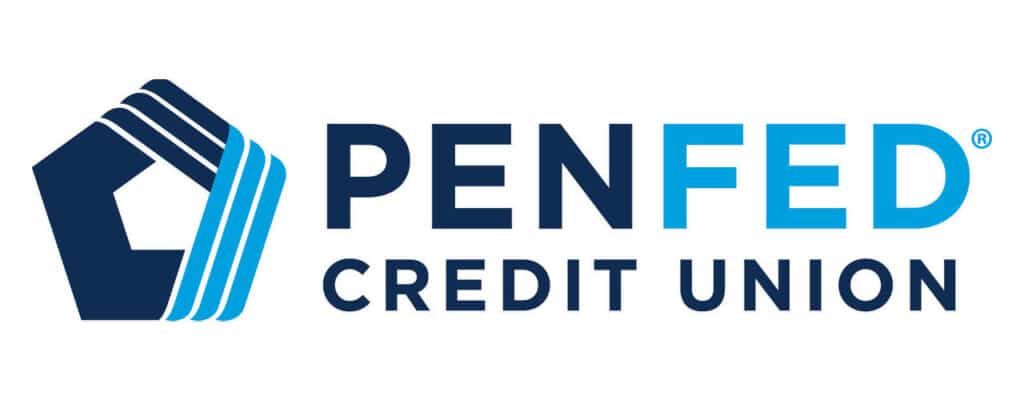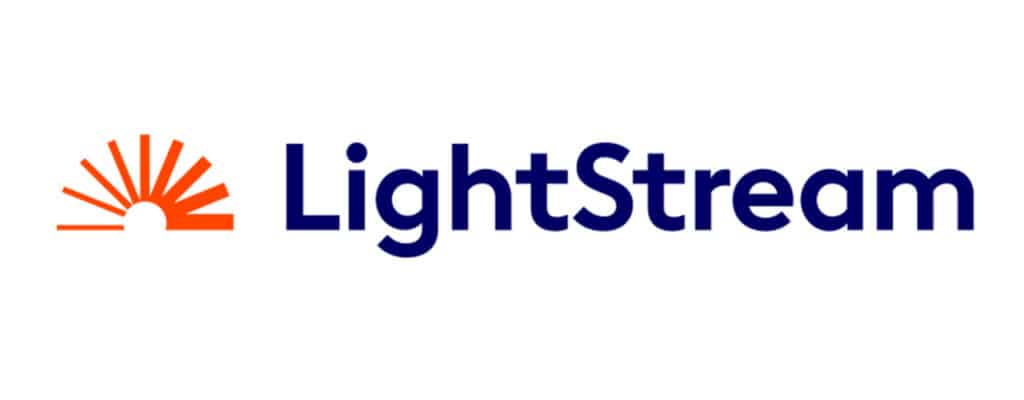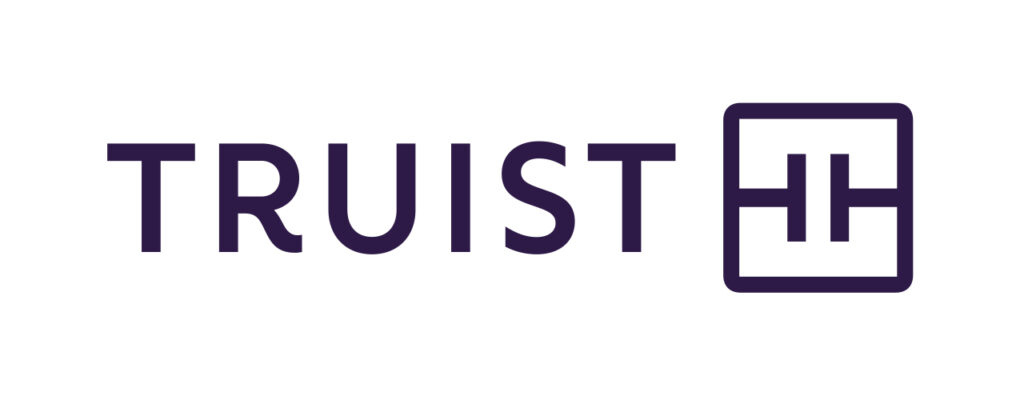Most products on this page are from partners who may compensate us. This may influence which products we write about and where and how they appear on the page. However, opinions expressed here are the author's alone, not those of any bank, credit card issuer, airline or hotel chain.
Personal loans can be convenient if you need to borrow money, but you’ll pay interest on the amount you borrow. Some lenders also charge fees that can add to your borrowing costs. Fortunately, certain lenders offer minimal or no fees to borrowers, so you won’t need to worry about paying added costs on top of the interest. It’s common for lenders to offer no prepayment penalties, but an increasing number of lenders are offering loans with no late payment fees and no origination fees.
We’ve rounded up some of the best options to consider if you're looking for a no-fee personal loan. Below, we’ll also discuss what no-fee loans are, how to qualify for them, and what to look at as you compare loan options.
What Is a No-Fee Loan?
The term “no-fee loan” generally refers to a personal loan with no origination fees or prepayment penalties, though it may also include personal loans with no late fees. But it’s pretty rare to see a loan with no late fees, as lenders charge these fees to help ensure you don’t miss monthly payments in the future.
Some of the common fees you may see in a typical personal loan include:
- Origination fees are upfront charges that cover the cost of preparing and issuing your loan.
- Prepayment penalties are costs you’ll incur for repaying your balance before the end of your loan term.
- Late fees are charged if you miss a payment.
Opting for a loan without these fees can help you save money and may even allow you to pay off your loan balance earlier than expected.

A Complete Guide to Personal Loan Fees
What Can a No-Fee Personal Loan Be Used for?
No-fee personal loans can be used for many purposes, including debt consolidation, home improvements, medical bills, veterinary bills, moving costs, emergencies or other large unplanned or planned expenses.
For instance, if you're carrying balances on multiple credit cards, you might opt to consolidate your credit card debt into a single payment with a personal loan. In addition, these loans generally have a fixed rate, so borrowers benefit from predictable payments for the set loan term.
However, you likely won’t be able to use a personal loan to cover college tuition, a home down payment, or a business expense. Loan proceeds also can’t be used for gambling or illegal activities.
 Related Article
Related Article
14 Ways You Can Use a Personal Loan
Best No-Fee Personal Loans
- Best for Small Loans: PenFed Credit Union
- Best for Lengthy Repayment Terms: LightStream
- Best Competitive Rates: Wells Fargo
- Best for Fast Funding: Truist
Loan results will vary based on creditworthiness, loan purpose, loan amount, and other factors.
Best for Small Loans: PenFed Credit Union
Some lenders require a loan minimum of at least a couple thousand dollars, but PenFed offers personal loans as low as $600, making it ideal for those who only need a small loan amount.
PenFed Credit Union
- Loan Amounts$600 – $50,000
- Loan Terms12 – 60 months
- APR Range7.99% – 17.99%
- Minimum
Credit Score700 or aboveA credit score is used to indicate the creditworthiness of an applicant, but it is only one of several factors considered for approval. These credit scores alone are not guarantees for approval and should only be used as guidelines.
PenFed offers no fees and small personal loans as low as $600.
Overview
While you will need to become a PenFed member if you decide to get a personal loan there, anyone can apply for membership and the process is quick and simple. Many lenders have relatively high minimum loan amounts, but PenFed offers loans as small as $600, with no origination fees and competitive APRs. If you’d like to view personal loan rates with PenFed, you can do so without impacting your credit score.
Pros
- Pre-qualification is available
- No origination fee, hidden fees or prepayment penalties
- Borrow as little as $600
- Allows co-borrower
- Funding as early as 1-2 business days after approval
Cons
- Must be a member to receive the loan
- No option for direct payment to creditors for debt consolidation
Best for Lengthy Repayment Terms: LightStream
Five-year repayment terms are pretty common, but LightStream offers longer repayment terms of up to 144 months for qualified borrowers. Borrowers also won’t pay prepayment penalties, late fees, or origination fees.
LightStream
- Loan Amounts$5,000 – $100,000
- Loan Terms24 – 144 months
- APR Range7.49% – 25.49% (with autopay)
- Minimum
Credit Score660 or aboveA credit score is used to indicate the creditworthiness of an applicant, but it is only one of several factors considered for approval. These credit scores alone are not guarantees for approval and should only be used as guidelines.
LightStream is a solid online lender offering no fees, high loan maximums and low-rate personal loans for several purposes.
Overview
LightStream offers personal loans for several purposes, including debt consolidation, medical expenses, home improvement, weddings, car purchases and more, making this worth considering for those seeking flexibility. The lender offers relatively low rates compared to competitors, including autopay discounts. Its personal loans also have no origination fees or late fees, which can help keep borrowing costs low. However, borrowers will likely need to have good-to-excellent credit in order to be approved for a LightStream personal loan. Overall, it’s a good lender to add to your shortlist if you’re looking for flexible funding, no fees and a low APR. Lightstream may also disburse loans as soon as the same day you’re approved, making this lender a worthy choice if you need fast funding.
Pros
- Low minimum APR
- No origination fees, no late fees
- High loan maximum of $100,000
- Autopay discount
- Joint applications allowed
Cons
- Rates and terms vary by loan purpose
- No soft pull prequalification
- Must have good-to-excellent credit
- No physical branches
Best for Competitive Rates: Wells Fargo
Wells Fargo offers personal loans with interest rates that are among the lowest compared to competitors for qualified borrowers. Existing customers may also qualify for a relationship discount, which can bring the interest rate lower.
Wells Fargo Personal Loans
- Loan Amounts$3,000 to $100,000
- Loan Terms12 - 84 months
- APR Range7.49% - 23.24%
- Minimum
Credit ScoreNot disclosedA credit score is used to indicate the creditworthiness of an applicant, but it is only one of several factors considered for approval. These credit scores alone are not guarantees for approval and should only be used as guidelines.
With a Wells Fargo personal loan, you can borrow up to $100,000 and access a competitive APR—as well as no origination fees.
Overview
Offering a range of personal loan repayment terms, loan amounts up to $100,000, and competitive APRs, Wells Fargo could be a smart choice for borrowers seeking flexibility. Existing qualified Wells Fargo customers may also benefit from relationship discounts, which can bring your rate even lower. Like other personal loans, Wells Fargo’s loans can be used for several purposes, including debt consolidation and home improvements. Borrowers won’t pay any origination fees or prepayment penalties, though late fees may apply if you miss your payment date.
Wells Fargo doesn’t disclose its minimum credit score requirements, and it indicates loans may be funded in one to three business days after approval. This is a longer funding time frame than certain competitors. Despite these drawbacks, a personal loan from Wells Fargo does offer solid perks, so it’s worth a look if you’re comparing options.
Pros
- Large loans of up to $100,000 available
- Has prequalification option
- Relationship discounts for qualified existing customers
- Same-day credit decisions possible
Cons
- Credit score requirements not disclosed
- Funding time is longer than some competitors
Best for Fast Funding: Truist
Truist may disburse your loan as soon as the same day you’re approved, which is faster than many competitors. Borrowers also won’t pay origination fees or prepayment penalties.
Truist Personal Loans
- Loan Amounts$3,500 - $100,000
- Loan Terms24 - 60 months
- APR Range8.74% to 17.39%
- Minimum
Credit ScoreNot disclosedA credit score is used to indicate the creditworthiness of an applicant, but it is only one of several factors considered for approval. These credit scores alone are not guarantees for approval and should only be used as guidelines.
Truist offers no origination-fee personal loans with same-day funding available in certain cases.
Overview
Truist is a relatively new lender, formed in 2019 after the merger of established financial companies BB&T and SunTrust Bank. Truist’s unsecured personal loans come with a wide range of loan amounts, competitive APRs, and fast funding—approval decisions may happen in as little as 15 minutes. It doesn’t disclose its minimum credit score requirement, though it does state that the best rates are reserved for borrowers with excellent credit. Still, Truist’s no origination fee, quick approval decision, and other perks make this lender worth considering if you’re shopping for a personal loan and live in one of the 17 states the bank lends in.
Pros
- Quick approval decisions and funding possible
- No origination fees
- Low loan maximum
Cons
- Available in a limited number of states
- Relatively short maximum repayment term
- No prequalification option
How Do You Qualify for a No-Fee Personal Loan?
Many lenders require that borrowers have good to excellent credit to qualify for a no-fee personal loan, though some may have lower credit score requirements. A good FICO score is within the 670 to 739 range, very good is 740 to 799, and excellent is 800 or over.
If your credit history isn’t up to par, certain lenders also let you apply with a co-signer or co-borrower to increase your likelihood of being approved for a loan. Lenders that offer this option will also consider your co-signer's or co-borrower's credit history when you apply. So if you opt to apply with someone else, be sure it’s someone with strong credit.
Beyond your credit score and history, lenders may also consider your debt-to-income ratio (DTI) and other factors when applying for a loan. A DTI of 35% or under is generally considered good.
How to Choose a No-Fee Personal Loan
As you shop around for a no-fee personal loan, several factors are worth considering, including interest rates, loan amounts, repayment terms, and the overall reputation of the lender you’re researching. Here’s what to look at as you compare options:
- Interest rates: Your interest rate is the cost of taking out a loan, which amounts to a percentage of the total amount borrowed. Different lenders offer different loan rates, so it’s important to compare them to get the best rate possible.
- Loan amounts: Every lender offers a loan maximum and loan minimum. For instance, some may have a minimum loan amount of $2,000, while others may have loans as small as $500. If you need a large loan, look for lenders with high loan maximum.
- Fees: While some lenders might offer no origination fees or prepayment penalties, they may charge other fees. For instance, late payment fees are fairly common and can be as high as $50, depending on your chosen lender. Research other potential fees to ensure you know all the costs you could incur.
- Rate Discounts: Some lenders offer interest rate discounts for certain actions, like setting up autopay. Discounts can be as high as 0.25%.
- Repayment terms: Repayment terms of up to 60 months are fairly common, though some personal loan lenders offer shorter or longer terms. For example, LightStream offers term lengths of up to 144 months, which is very long compared to loan terms offered by some competitors.
- Minimum credit score requirements: Many lenders require that borrowers have a good credit score, which ranges from 670 to 739 in the FICO scoring model. Check your credit score before applying. If you have a low credit score, look for borrowers willing to work with your credit score range.
- Co-applicants or co-signers: Certain lenders also permit co-applicants or co-signers on loan applications. If you’re concerned your credit score will be a barrier to loan approval, you might want to opt for a lender that lets you use a co-borrower or co-signer.
- Customer service: Customer service options vary by lender as well. For instance, some may offer live chat support for borrowers, while others require that you submit an email ticket to get assistance. If you prefer in-person banking, consider a personal loan from a bank with a brick-and-mortar location.
- Lender reputation: You’ll also want to look into lender reputation as you shop around. Check out reviews on third-party sites to get a sense of what other customers have to say about their experience, funding time, application process, etc. After all, you want to be sure your lender is trustworthy and reputable.
- Funding time: If you need money fast, such as funding for emergencies, it's important to consider funding time. Some lenders will disburse loans as soon as the same day or one business day after approval, while others take longer.
 Related Article
Related Article
How to Prequalify for a Personal Loan, and Why It Can Be a Good Idea
FAQs
-
Annual percentage rates (APRs) aren’t necessarily higher on personal loans without origination fees. Lenders determine APR ranges, so they can vary depending on the bank or credit union issuing the loan.
Origination fees are typically charged upfront and calculated as a percentage of the principal balance. These fees can drive up the cost of your loan. For instance, if you take out a $10,000 personal loan and the lender charges a 10% origination fee, you’d need to pay a $1,000 fee, which would generally be deducted from your loan proceeds. So even though you applied for a $10,000 loan, you’d actually get $9,000 after accounting for the origination charge.
-
Yes, in general you’ll need good credit to get a no-fee personal loan with many lenders. Some lenders may approve borrowers with lower credit scores. Fair-credit loans may come with higher interest rates and lower loan amounts. You could also apply with a co-signer or co-borrower.
As you compare loan options, ask different lenders about their minimum credit score requirements. That way, you won’t be unpleasantly surprised if you’re not approved for a loan because your credit score isn’t great.
-
It might be possible to qualify for a no-fee loan if you have bad credit, but you’ll likely need a co-signer or co-borrower and you may get a higher interest rate. If you have bad credit, consider working on improving your credit score first before you take on additional debt. Doing so could put you in a stronger financial position when you apply for a no-fee personal loan and increase your chances of approval. Remember, the best low-interest loans are generally reserved for borrowers with excellent credit scores.
-
Negotiating with your lender to reduce or waive an origination fee is possible, though it’s not guaranteed they’ll do so. Consider prequalifying for a couple of different loans. If the lender you’d like to work with has an origination fee, but the other lender you’ve prequalified with does not, that pre-qualification could serve as a helpful bargaining chip.
To prequalify, you'll generally provide some basic personal information and the amount you're looking to borrow. Most lenders will only do a soft credit check to pre-qualify you, so you won't need to worry about a ding to your credit score.
Consider overall loan costs, including your interest rate and any fees you might be charged before applying for a loan. Common fees include origination fees, prepayment fees, and late fees.
